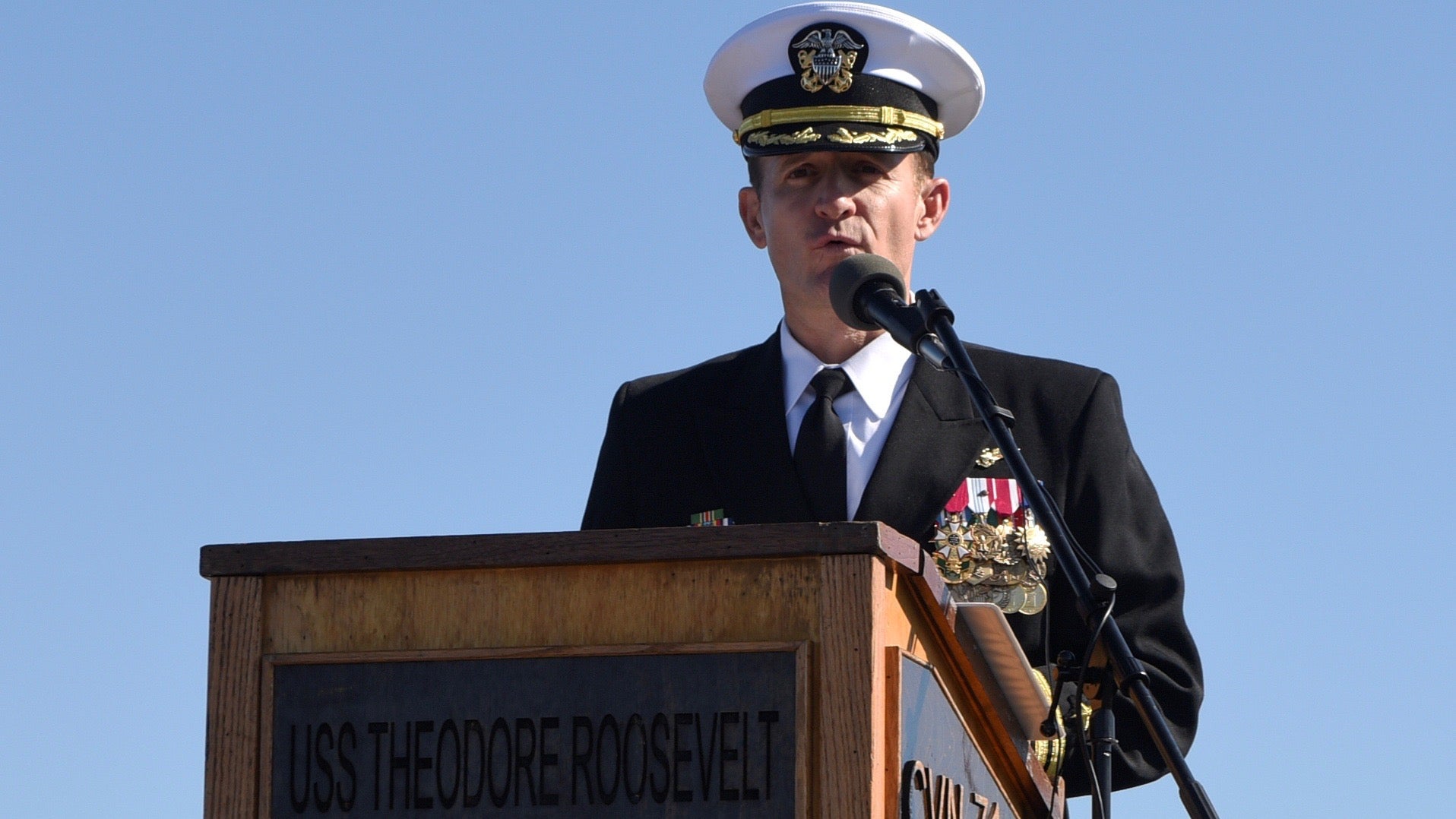The Navy captain fired for sounding coronavirus alarms broke no law—just protocol
In a world that seems to have gone to hell in a handbasket very rapidly, with the regular rules of society quickly jettisoned due to the coronavirus crisis, some authorities are responding to pandemic management critiques by firing subordinates who sound alarm bells.


In a world that seems to have gone to hell in a handbasket very rapidly, with the regular rules of society quickly jettisoned due to the coronavirus crisis, some authorities are responding to pandemic management critiques by firing subordinates who sound alarm bells.
Most recently, acting secretary of the US Navy, Thomas Modly, announced that captain Brett Crozier was relieved of his command of the USS Theodore Roosevelt, stationed in the Pacific, for showing “extremely poor judgment” by widely disseminating a memo about the coronavirus infection spreading quickly on the vessel with 4,800 crew members. Modly accused Crozier of “misrepresenting the facts” and took him to task for disobeying the chain of command.
The acting Navy secretary told reporters, “While I do take issue with the validity of some of the points in captain Crozier’s letter, he was absolutely correct in raising them. It was the way in which he did it…that was unacceptable to me.”
This response doesn’t sit well with civilians. After all, extraordinary times call for extraordinary measures, and the vessel was essentially a petri dish of disease, with 100 crew members testing positive for Covid-19 already. At the Washington Post, columnist Max Boot wrote a piece entitled, “The only official fired over the virus? A captain who tried to protect his crew.”
Seventeen Democratic senators have called for the Defense Department inspector general to conduct a formal investigation into the firing. Joe Biden, Democratic presidential candidate and former vice president, also criticized the move, tweeting, “Navy leadership sent a chilling message about speaking truth to power.” And an online petition for Crozier’s reinstatement already has nearly 115,000 signatures as of the time of this writing.
Meanwhile, crew members aboard the sidelined vessel say everyone turned out to cheer the captain that the Navy reprimanded.
So how did this happen?
Military law expert Gary Solis—also a Marine Corps veteran and West Point adjunct professor of law—tells Quartz that Crozier broke no law in the code of military justice and won’t face legal consequences, but adds that he’s likely destroyed his career. “Right or wrong, he wasn’t relieved for trying to save lives. It’s that he exercised poor judgment in a public way. That’s it for him. He’s never going to see a good duty station again—he’s just screwed.”
Even if Crozier’s superiors were unresponsive to his initial requests for help, the captain’s obligation was to inform his boss and lay a record in writing that would force action while still following procedure, Solis explains. But Crozier’s letter was widely disseminated.
Solis says he has “great sympathy” for Crozier but from the perspective of superior officers in the military, “there’s no room for failing to follow accepted and long-respected chain-of-command obligations.”
In any case, Crozier is not alone in paying a high price for his Covid-19 whistleblowing.
On March 27, an emergency room doctor in Washington state who posted complaints on Facebook about his hospital’s coronavirus protections and pleaded for more protective gear was also fired. “I got a message that said, ‘Your shift has been covered,'” Ming Lin told the Seattle Times. Lin phoned his supervisor and learned that despite the public health crisis and 17 years of service, he would not be returning.
The punishment of whistleblowers right now is particularly frightening given that this pandemic might not have become quite the global nightmare it has if authorities in China hadn’t tried to silence Li Wenliang, a doctor who initially warned about a cluster of severe pneumonia cases in December, was reprimanded by Wuhan authorities, and died of the new coronavirus in February.
Suzanne Nossel, CEO of PEN America, a New York-based nonprofit that fights censorship and promotes free speech, acknowledges that officials have an interest in minimizing public panic. But she rejects the contention that suppressing facts can do that.
In response to news of Lin’s termination last week, she told Quartz in an email on March 29, “The free flow of information is essential to effective pandemic response. If officials cannot help foster it, they should at least get out of the way.” Managing public sentiment “has to be done with fealty to the truth, since there’s nothing that stokes anxiety more than the feeling that we are being lied to and cannot trust those in power to level with the people.”